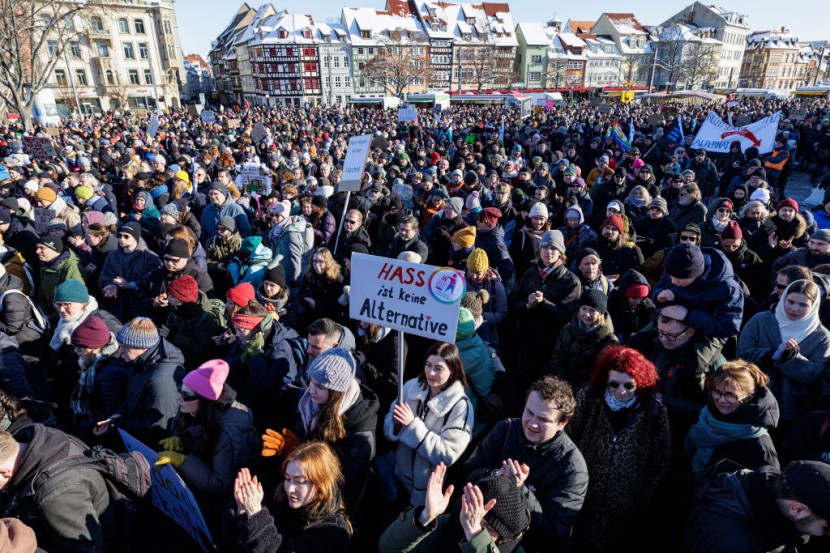Many demonstrators flooded the streets throughout Germany to express their opposition to the far-right. The catalyst for this widespread protest was a disclosed report alleging the involvement of multiple members from the Alternative for Germany Party (AfD) in a meeting that discussed mass deportations of migrants.
In Munich alone, the police stated that roughly 100,000 individuals participated in the Sunday protest. This represents just one of many events across the country last weekend, collectively drawing in hundreds of thousands of participants who braved extremely cold temperatures to rally against the alleged far-right's plans.

The demonstrations were not confined to Munich alone. Throughout the week, numerous protests unfolded on various German streets. On Sunday, concurrent with the Munich rally, police reported over 60,000 people protesting against the AfD in Berlin.
According to organizers, approximately 70,000 people simultaneously participated in Cologne on the same day. In Hamburg on Friday, around 50,000 people joined the protest.
Saturday's demonstrations in other German cities, such as Stuttgart, Dortmund, Hannover, and Nuremberg, attracted thousands of participants. Protests were staged even in traditionally strong AfD-voting cities like Leipzig and Dresden.
Several people have pointed out that the suggested mass deportation plan shares resemblances with the Nazi era, a dark historical period that was characterized by the involuntary relocation of millions to concentration camps, forced labor facilities, and extermination camps.
Because of this, banners at protests across the country expressed messages such as "Nazis, no thank you," "It feels like 1933, AfD ban now!" and "Investigate banning AfD," highlighting the opposition to the party's anti-immigrant stance, drawing parallels to the Nazi era in Germany during the 1930s and 40s, according to Al Jazeera.
German Chancellor Olaf Scholz has approved the protests, deeming them "good and right." In a video message released Friday night, Scholz conveyed his effort to understand how the more than 20 million citizens with a history of migration might feel about the deportation plan.
Germany Denies Allegations of Mass Deportations
Last week, Correctiv, a media outlet, released a report detailing an alleged far-right meeting near Berlin in November. The gathering purportedly involved discussions on a proposal to deport millions of immigrants and refugees, including individuals with German citizenship.
The report suggests that the assembly included individuals associated with the extremist Identitarian Movement and the AfD. Notably, Martin Sellner, a prominent member of the Identitarian Movement and an Austrian citizen, reportedly presented his vision of "remigration," emphasizing the concept of deportations.
The revelation has sparked widespread outrage among many Germans who are deeply concerned about reports indicating that senior members of the Alternative for Germany (AfD) engaged in discussions regarding a "master plan" for mass deportation.
In response, the AfD has denied adopting the "remigration" project advocated by Sellner and refutes any association with such proposals, asserting that they do not align with its official policy. However, they acknowledged the presence of their members at the meeting.
© 2026 HNGN, All rights reserved. Do not reproduce without permission.








